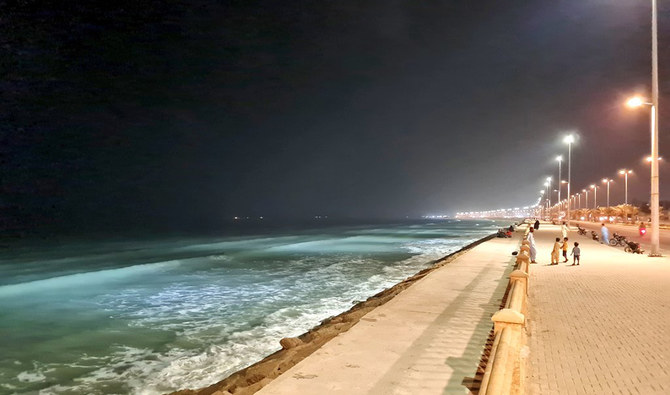GWADAR: A federal government adviser said on Tuesday Pakistan had directed authorities in the southwestern Balochistan province as well as the power division of the country to initiate talks with Iran on the purchase of an additional 100 megawatts of electricity to fulfill the daily power needs of Gwadar, a port city at the center of the $65 billion China-Pakistan Economic Corridor (CPEC).
Balochistan is Pakistan’s most underdeveloped and neglected region, and Gwadar is not connected to the national grid. It had instead relied on power from neighboring Iran but that has slowed to a trickle in recent months. Water has also become scarce after a dam dried up.
Last year, weeks-long protests erupted in the strategically important fishing town against a severe shortage of water and electricity and threats to livelihoods, seen as part of growing discontent with China’s presence in Gwadar.
Beijing and Islamabad hope to turn Gwadar into a regional commercial, industrial and shipping hub that will give China a shorter, more secure trading route, via Pakistan, to the Middle East and beyond, while also boosting Pakistan’s economy. But locals of the city have long complained that Chinese presence and investment in the area has done little to improve their lives, particularly with regards to water and power scarcity. Baloch militant insurgent groups have also carried out militant attacks in protest over CPEC projects.
“Instructions have been issued to the government of Balochistan and the [federal] power division for talks with Iran for the purchase of an additional 100 megawatts of electricity at the soonest,” Jawad Akhtar Khokhar, a maritime affairs adviser at the Pakistani planning ministry, told Arab News.
Since 1999, Iran has supplied electricity to Pakistan’s Gwadar, Kech and Panjgur districts in the coastal Makran division in Balochistan. It supplied 35MW daily until 2013, when the quota was increased to 100MW due to the growing needs of Gwadar, where residents have long complained of neglect and protested for basic rights.
Khokhar said the government had granted the Frontier Works Organization (FWO), a military engineering organization, a contract to build a power transmission line to connect Pakistan’s coastal districts with the national grid, for which Rs3 billion ($14.9 million) had been allocated. In the longterm, he said, proposals were under discussion for China to produce 300MW for Gwadar port and city.
In addition to this, he said, 3,000 solar panels had been distributed among local fisherfolk, 1,032 of which had been installed already while the remaining would be installed within a month.
Addressing a conference in Gwadar last week, organized by the Institute of Policy Studies (IPS) and the University of Gwadar, among others, Khokhar gave an overview of development projects in the port city, saying three projects worth $314 million had been completed. These include the Gwadar Smart Port City Master Plan, physical infrastructure of the Gwadar Port and Free Zone Phase-1, and the Pak-China Technical and Vocational Institute.
Another seven projects worth $1.44 billion were in the implementation phase, including the Eastbay Expressway, water treatment, supply and distribution facilities, New Gwadar International Airport, Pak-China Friendship Hospital, Gwadar Free Zone Phase-II, 300 MW coal power plant and a desalination plant with 1.2 million gallons’ capacity.
Speaking at a conference, Naseer Khan Kashani, chairman of the Gwadar Port Authority (GPA), said the government needed to “prioritize people over infrastructure development.”
“Drinkable water and electricity is the top priority of authorities in Gwadar,” he said.
In his keynote speech at the conference, Zhang Baozhong, chairman of the China Overseas Ports Holding Company (COPHC), said Beijing acknowledged that Gwadar deserved “more rapid development to live up to the expectations of the local people.”












